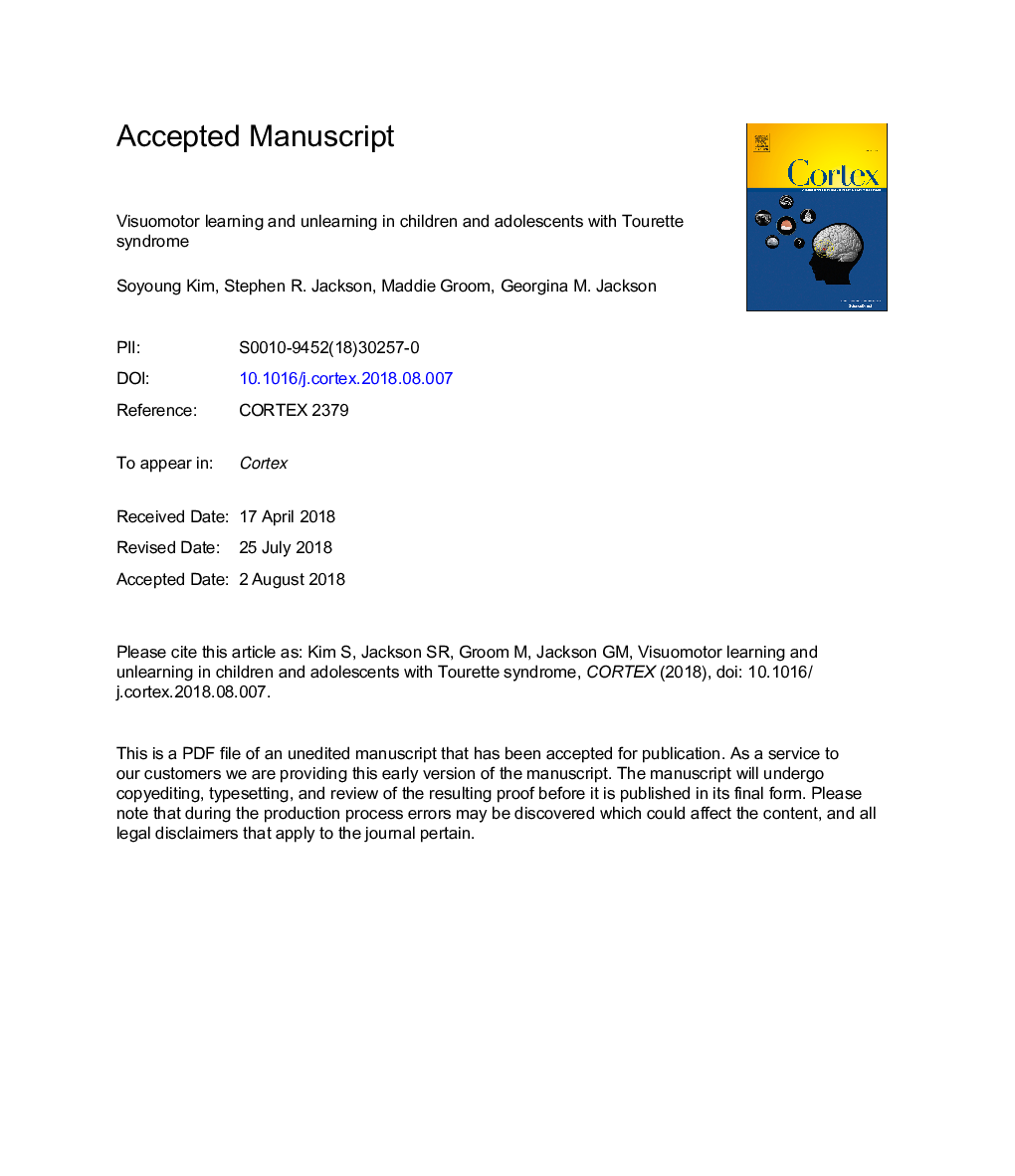| Article ID | Journal | Published Year | Pages | File Type |
|---|---|---|---|---|
| 11023431 | Cortex | 2018 | 32 Pages |
Abstract
Tourette syndrome (TS) is a childhood-onset neurological condition characterised by an evolving repertoire of chronic motor tics and one or more phonic tics. Tics, like habits, are inflexible and repetitive behaviours that are acquired over a period of time. It has been proposed that tics arise in TS as a result of increased habit learning: which may bias the child to acquire automatic behaviours (i.e., tics) more readily than is normal and make it harder to unlearn maladaptive habits once they have been acquired. Using a well-established visuomotor adaptation task, we investigated motor learning in a group of children and adolescents with a clinical diagnosis of TS relative to a group of age and gender matched typically developing individuals. In particular, we quantified differences in the strength and quality of motor learning and unlearning in TS, and the consolidation of motor learning over a 24Â h washout period. We demonstrated that there was a marginally significant decrease in learning rate in the individuals with TS relative to age and gender matched typically developing controls. However, this effect was not associated with tic severity and could be entirely accounted for by the severity of co-occurring ADHD symptoms. Thus, once ADHD symptoms had been accounted for, there were no between group differences in learning rate or the degree of learning observed. By contrast, and more importantly, we found that following learning the rate of forgetting (unlearning) was significantly negatively associated with motor tic severity, such that individuals with more severe tics took longer to unlearn previously learnt motor patterns of behaviour. This finding is consistent with the proposal that TS is associated with alterations in the striatal habit learning system and with the view that TS may make it harder to unlearn maladaptive motor habits once they have been acquired.
Related Topics
Life Sciences
Neuroscience
Behavioral Neuroscience
Authors
Soyoung Kim, Stephen R. Jackson, Maddie Groom, Georgina M. Jackson,
